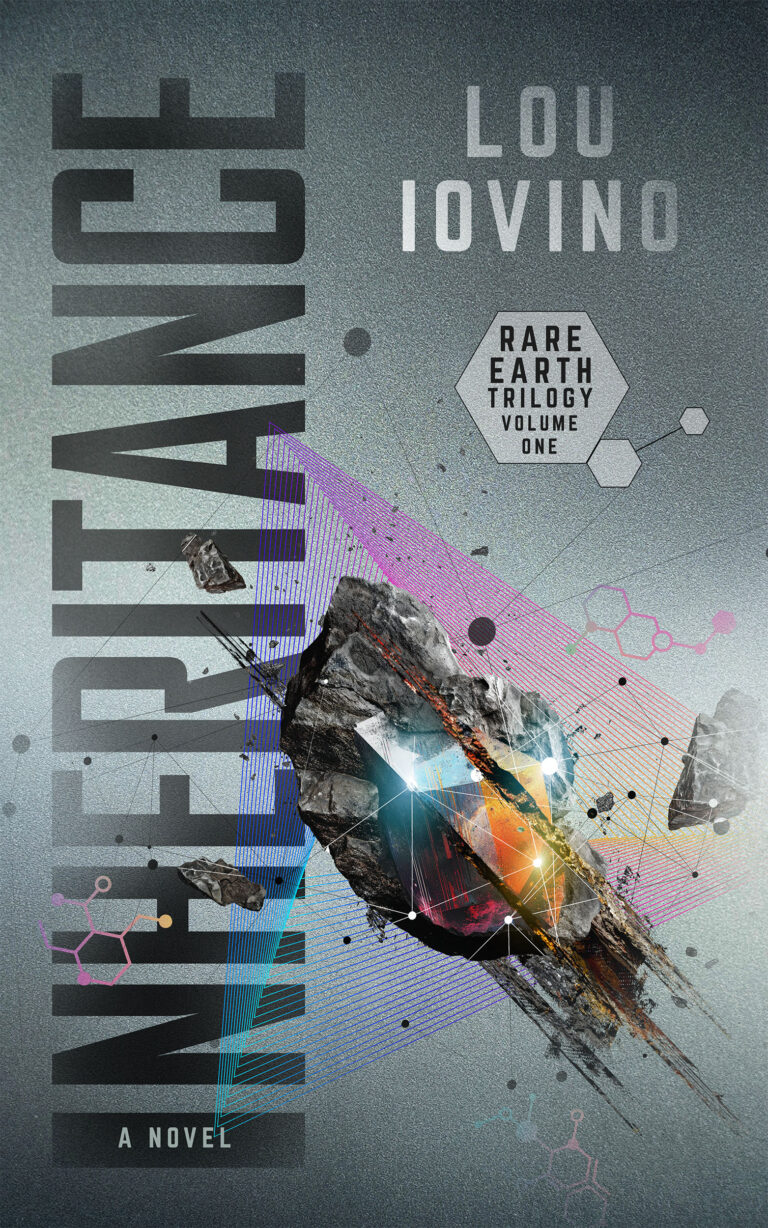Thea used to hate her father’s job; for months at a time he was away in space, mining asteroids for the rare metals that drive industry on Earth. When he dies, she plans to sell his ship and take the money. But—per one final request from him—she visits the ship where it’s docked on the moon before making the sale. The unexpected beauty inspires her to take up her father’s old line of work, forming a little family of misfits to crew the vessel.
Lou Iovino’s INHERITANCE is rich, solid, working-class sci-fi. Taking its cues from earthbound mining and fishing, the text lays out a plausible vision for near-future industry and peoples it with steady, salt-of-the-earth working folks. There’s a politics-and-espionage plot thread that becomes increasingly significant in the last third of the story, but the core of this novel is about the dignity and pride of the working class: Thea is not only learning her late father’s trade, but also competing as a small-scale “civilian” operation against the high-tech flotilla of the well-heeled corporate Conglomerate. Though there’s real drama to the life-and-death stakes of space travel—the most affecting struggle is that of economics and personalities. Every mechanical failure or strategic misstep is not only a danger to life and limb, but also a blow to the operation’s finances. The yawning peril of failure is personified in the slick, scheming admiral of the Conglomerate fleet, who is all too willing to deviously outcompete Thea’s crew with all the resources at his disposal and ready to buy her out in any moment of perceived weakness.
This existential drama is narrated in simple, strong prose well-suited to the people and industry that it describes. The worldbuilding is quick and efficient; there’s clear thought and care to the layout of the lunar dock, refinery, and to the technology of space mining, but it never obstructs the pace as the narrative clips from one episode to the next. The descriptive language wrings a lot from a little. In a description of a wrecked ship, for instance, there’s only one simile deployed: specifically, debris reflecting their searchlights “like marbles of tempered glass scattered across a highway.” The real impact comes from lists of everyday objects drifting in space: “clothes, boots, packets of food, a coffeemaker, canvas bags, a toilet.” Altogether, the prose movingly reflects the feelings of the characters themselves about the profound natural beauty in which they go about their otherwise workaday lives. As INHERITANCE sums up: “If you’re going to break your back for a living, you might as well do it on the friggin’ moon.”
The novel ends on a cliffhanger, and it’s sure to pursue its political plotline in the sequel. But, hopefully, it will also retain the heart and charm of its working-class perspective, which makes this text so compelling.
Lou Iovino’s INHERITANCE is a gripping read, a moving portrayal of labor, and a promising start to the Rare Earth Trilogy.
~Dan Accardi for IndieReader


